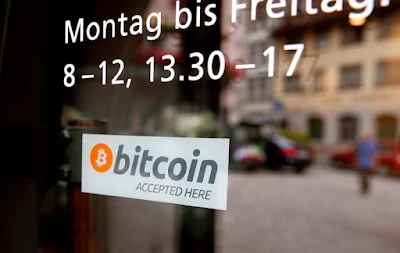Introduction
Bitcoin has been a game-changer in the financial world, capturing the attention of tech enthusiasts, investors, and even skeptics. With its meteoric rise, it has carved out a new space in the global economy. But the big question looms—are we witnessing a sustainable revolution, or is Bitcoin just another bubble waiting to burst?
The Current State of Bitcoin
Market Performance and Volatility
Bitcoin’s recent ability to hit $32,400 while global equity markets faced downturns shows its resilience and emerging role as a distinct asset class. Yet, its infamous volatility persists, with sudden price swings that can unsettle even seasoned investors.
Institutional Adoption
Major institutions, including hedge funds and corporations, are now holding Bitcoin in their portfolios. While this boosts Bitcoin’s credibility, it also raises concerns about how large-scale trading by institutions could destabilize its price.
Is Bitcoin a Bubble?
Arguments for the Bubble Theory
Bitcoin’s rapid price surges have drawn parallels to infamous bubbles like the dot-com crash and the 2008 housing crisis. Critics argue that Bitcoin’s value lacks clear fundamentals, relying more on speculation than practical utility.
A Deutsche Bank survey revealed that many investors still view Bitcoin as overvalued. Regulatory uncertainties, particularly in countries like the United States, only add to the risk of an overheated market.
Counterarguments: Bitcoin’s Unique Value Proposition
Proponents argue that Bitcoin’s capped supply of 21 million coins makes it fundamentally different from assets in previous bubbles. Its decentralized nature and growing acceptance as legal tender in countries like El Salvador highlight its potential to disrupt traditional financial systems.
Factors Influencing Bitcoin’s Future
Macroeconomic Trends
In times of high inflation, Bitcoin often shines as a “digital gold,” attracting investors seeking to hedge against eroding purchasing power. Conversely, tighter monetary policies can reduce risk appetite, affecting Bitcoin’s demand.
Regulatory Landscape
Bitcoin’s future largely hinges on how governments handle cryptocurrency. Some nations, like El Salvador, embrace it, while others impose bans or strict regulations. Global cooperation on crypto regulations could either stabilize or suppress Bitcoin’s growth.
Technological Developments
Innovations like the Lightning Network aim to solve Bitcoin’s scalability issues, enabling faster transactions and lower fees. These advancements could be the key to driving mainstream adoption.
Potential Scenarios for Bitcoin
Scenario 1: Infinite Growth
Optimists envision Bitcoin as the next global reserve currency or a universal store of value. If adoption continues to grow, Bitcoin’s price could soar to unprecedented levels, becoming an integral part of the global financial system.
Scenario 2: Market Correction
Skeptics argue that regulatory crackdowns or a loss of investor confidence could lead to a severe market correction. In this scenario, Bitcoin would reinforce its image as a speculative asset, deterring mainstream adoption.
Conclusion
Bitcoin’s journey is anything but predictable. While it holds the promise of revolutionizing finance, it also carries significant risks. Investors should approach Bitcoin with a mix of optimism and caution, understanding its potential to soar and its vulnerability to collapse.
FAQs
1. What makes Bitcoin unique compared to traditional assets?
Bitcoin is decentralized, with a finite supply of 21 million coins. Unlike traditional assets, it operates independently of central banks and governments, making it a hedge against inflation and a tool for financial freedom.
2. How does regulation impact Bitcoin’s growth?
Regulation plays a dual role. Favorable laws can stabilize and legitimize Bitcoin, while restrictive policies could stifle innovation and limit its adoption.
3. Is Bitcoin a reliable hedge against inflation?
Yes, during high inflation periods, Bitcoin is often seen as a digital equivalent of gold, attracting investors looking to preserve their wealth.
4. Can Bitcoin become a mainstream medium of exchange?
Technological advancements, like the Lightning Network, are improving Bitcoin’s scalability and transaction speeds, making it more viable for everyday use.
5. What risks should investors consider with Bitcoin?
Bitcoin’s volatility, regulatory uncertainties, and potential technological vulnerabilities are key risks that investors should carefully evaluate.
Please don’t forget to leave a review











0 Comments